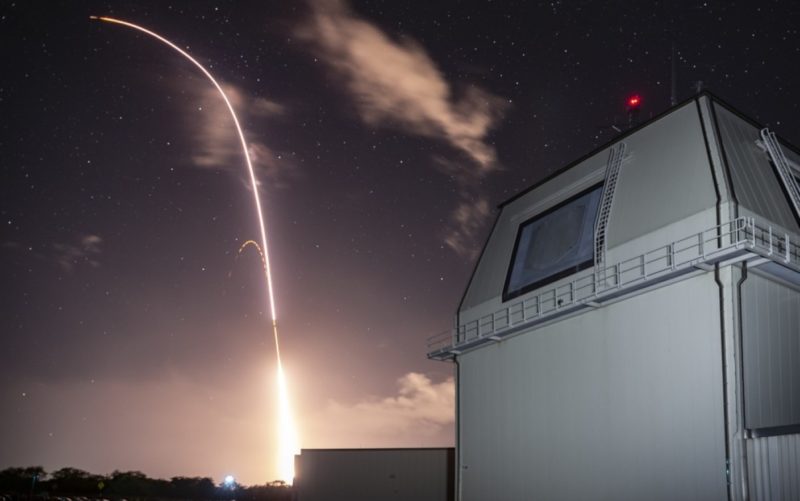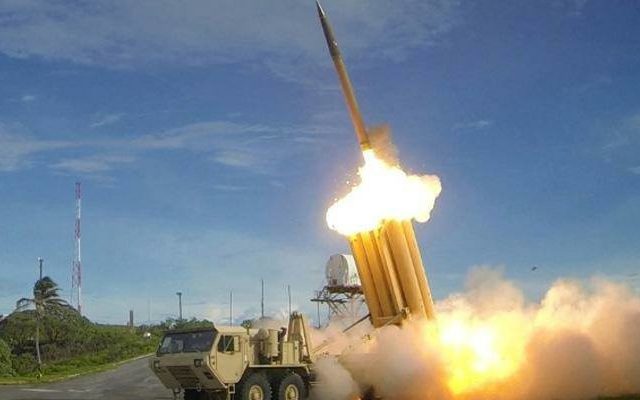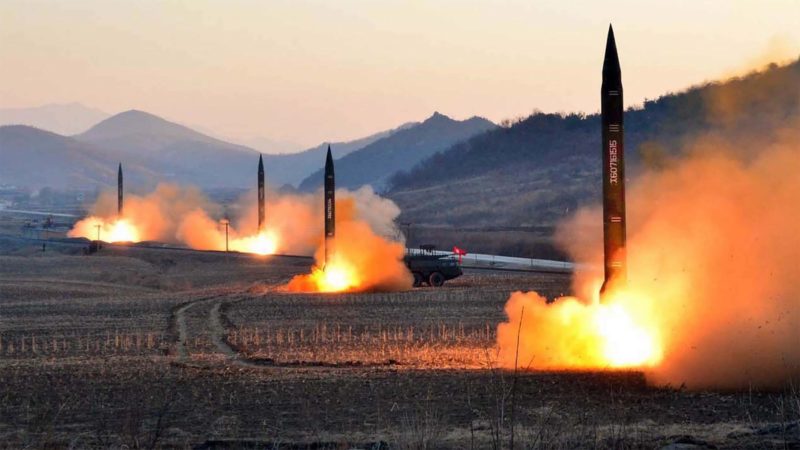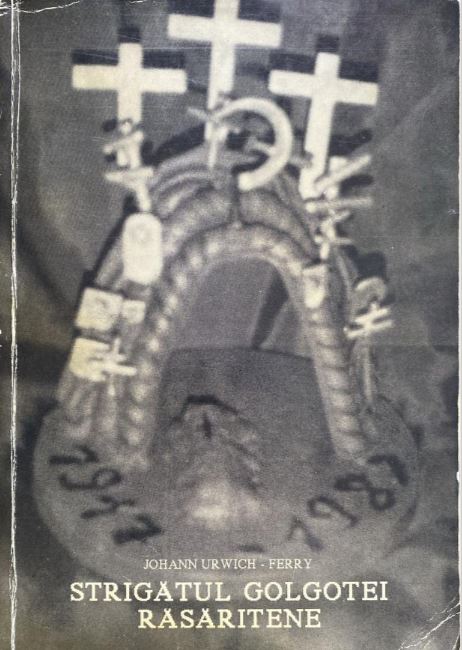Mihnea Codreanu
Incorect Politic
August 25, 2019
Situl de rachete NATO Deveselu din România, parte a sistemului american de apărare a rachetelor Aegis, a finalizat „actualizarea” începută în luna aprilie a.c.. NATO a făcut un comunicat, asigurând că „nu a conferit sistemului nici o capacitate ofensivă”, care „rămâne pur defensiv, concentrat pe potențiale amenințări din afara zonei euro-atlantice”.
Situl Deveselu este echipat (conform descrierii oficiale) cu 24 de rachete, instalate în lansatoare verticale subterane, pentru interceptarea rachetelor balistice cu rază scurtă și medie. Un alt sit, care va prelua funcția în 2020 în baza poloneză Redzikowo, va fi echipat și el cu acest sistem. Lansatoarele de același tip se află la bordul celor patru nave ale Marinei SUA care, dislocate în baza spaniolă Rota, traversează Mediterana, Marea Neagră și Marea Baltică. Însăși desfășurarea lansatorilor arată că sistemul nu este îndreptat împotriva „amenințării iraniene” (așa cum declară Statele Unite și NATO), ci mai ales împotriva Rusiei.
Că așa-numitul „scut” nu este „pur defensiv” este explicat de aceeași industrie de război care a făcut-o, Lockheed Martin. Aceasta documentează că sistemul este “planificat să instaleze orice rachetă în orice suport de lansare”, astfel adaptat la “orice misiune de război”, inclusiv “atac împotriva țintelor terestre “. Lockheed Martin subliniază că suportele de lansare mai mari pot lansa „cele mai mari rachete, cum ar fi cele pentru apărarea contra rachetelor balistice și cele pentru atac pe distanțe lungi”. Prin urmare, se recunoaște, în esență, că instalațiile din România și Polonia și cele patru nave ale sistemului Aegis pot fi înarmate nu numai cu rachete anti-rachete, ci și cu rachete de croazieră Tomahawk, cu cap nuclear, capabile să lovească ținte la mii kilometri distanță.
Așa cum a fost documentat de Serviciul de cercetare al Congresului (24 iulie 2019), cele patru nave americane care „operează în apele europene pentru a apăra Europa de potențialele atacuri de rachete balistice” fac parte dintr-o flotă de 38 de nave Aegis care în 2024 va merge până la 59.
În anul fiscal 2020 vor fi alocați 1,8 miliarde USD pentru potențarea acestui sistem, inclusiv pentru România și Polonia. Alte nave de sistem terestre și Aegis vor fi dislocate nu numai în Europa împotriva Rusiei, ci și în Asia și Pacific împotriva Chinei. Conform planurilor, Japonia va instala pe teritoriul său două site-uri de rachete furnizate de Statele Unite; Coreea de Sud și Australia vor achiziționa nave americane din același sistem.
În plus, în cele trei luni în care echipamentul de la Deveselu a fost adus în Statele Unite pentru a fi „actualizat”, o baterie de rachete mobile Thaad a armatei americane a fost dislocată pe situl din România, capabile să trimită o rachetă balistică în atmosferă sau în afara acesteia, dar și în capacitatea de a lansa rachete nucleare pe distanțe lungi.
Odată cu refacerea sistemului Aegis – comunicat oficial NATO – Thaad a fost „redistribuită”, însă nu se specifică unde. Știm însă că armata americană a mutat bateriile de rachete de acest tip din Israel pe insula Guam din Pacific.
Având în vedere aceste fapte, întrucât Statele Unite renunță la Tratatul INF pentru a instala rachete nucleare de rază medie la marginea Rusiei și Chinei, nu este surprinzător anunțul făcut la Moscova de senatorul Viktor Bondarev, șeful Comisiei de Apărare, care a spus că Rusia a bazat bombardierele de atac nuclear Tu-22M3 în Crimeea.
Bineînțeles că românii nu vor afla despre această nenorocire pregătită pe teritoriul național, deoarece, în Uniunea Europeană, toate acestea sunt ascunse de aparatul mediatico-politic. Toate semnalele internaționale ne anunță un conflict major, iar România, prin intermediul criminalilor numiți “politicieni”, într-o democrație de nume, a fost vândută americanilor drept scut în viitorul conflict care se pregătește.
Din acest moment, în mod oficial, populația României a devenit o țintă vie!
 Incorect Politic O Publicație Dizidentă
Incorect Politic O Publicație Dizidentă








Deja în 2017, în cadrul cărții Manifest, Mihai Șerban atrăgea atenția asupra acestui fapt necunoscut și contrazis de grupurile naționaliste care strigau la “complotism” și exagerare.
oricum nu au cum sa intercepteze cu Aegis/Thaad HGV urile rusesti/chinezesti, so, risipa de bani. amerikanii au ramas in urma la hipersonice.
REUTERS
link
https://www.reuters.com/article/us-russia-usa-missiles/russia-says-no-plans-to-install-new-missiles-unless-u-s-deploys-them-idUSKCN1V8054
titlu
WORLD NEWSAUGUST 18, 2019 / 10:51 AM / 7 DAYS AGO
Russia says no plans to install new missiles unless U.S. deploys them
2 MIN READ
FILE PHOTO: Russia’s Defence Minister Sergei Shoigu attends the opening ceremony of the International military-technical forum ARMY-2019 at Patriot Congress and Exhibition Centre in Moscow Region, Russia June 25, 2019. REUTERS/Maxim Shemetov/File Photo
MOSCOW (Reuters) – Russia will not deploy new missiles as long as the United States shows similar restraint in Europe and Asia, Russian defense minister Sergei Shoigu said on Sunday, after Washington’s withdrawal from a Soviet-era arms pact.
The United States formally left the Intermediate Nuclear Forces (INF) treaty with Russia earlier this month after accusing Moscow of violating the treaty and deploying one banned type of missile, allegations the Kremlin denies.
Russia has also pulled out of the deal, but Shoigu said it had no plans to deploy new missiles.
“We still stick to that. Unless there are such systems in Europe (deployed by Washington), we won’t do anything there,” he told the Rossiya-24 TV channel, according to Interfax news agency.
The pact banned land-based missiles with a range of between 310 and 3,400 miles (500-5,500 km), reducing the ability of both countries to launch a nuclear strike at short notice.
Russian President Vladimir Putin has warned that Moscow would start developing short and intermediate-range land-based nuclear missiles if the United States started doing the same after the demise of the arms control treaty.
Reporting by Vladimir Soldatkin; Editing by Mark Potter
Our Standards:The Thomson Reuters Trust Principles.
Las’ ca nu-s de capul lor americanii !!!!!!!!
Bineinteles ca vor razboi, dar situatia e foarte tare complicata de China, prietena rusilor !!!!!
link
https://www.nytimes.com/2019/08/06/world/asia/china-us-nuclear-missiles.html
New York Times
titlu
China Warns U.S. Against Sending Missiles to Asia Amid Fears of an Arms Race
Image“We call on the U.S. to exercise restraint,” said a Chinese arms control official, Fu Cong.
“We call on the U.S. to exercise restraint,” said a Chinese arms control official, Fu Cong.CreditCreditAlex Halada/Agence France-Presse — Getty Images
By Alan Yuhas
Aug. 6, 2019
阅读简体中文版閱讀繁體中文版
China warned it would “not stand idly by” if the United States deployed ground-based missiles to Asia, as a bruising trade war and strained relations fueled fears of an arms race between Beijing, Washington and Moscow.
A Chinese arms control official, Fu Cong, delivered the warning three days after the American defense secretary, Mark Esper, said he favored deploying such missiles to the region “sooner rather than later.” Mr. Esper did not give an exact timeline or a possible base for the missiles, but suggested it would take months, potentially 18 or more, to field the weapons.
“We call on the U.S. to exercise restraint,” Mr. Fu said in a Foreign Ministry statement Tuesday. “China will not stand idly by and will be forced to take countermeasures if the U.S. deploys intermediate-range ground-based missiles in this part of the world.”
Mr. Fu did not specify what countermeasures China would take in response to a deployment. He did say, though, that China had “no interest” in arms control talks with the United States and Russia — a step toward President Trump’s ambition of a three-way nuclear accord.
Sign up for The Interpreter
Subscribe for original insights, commentary and discussions on the major news stories of the week, from columnists Max Fisher and Amanda Taub.
SIGN UP
The Trump administration has argued that Russian-American arms agreements are outdated in the context of a rising China, and on Friday the United States formally pulled out of the Intermediate-Range Nuclear Forces Treaty of 1987, or I.N.F., on the grounds of Russian violations.
Mr. Fu said the American withdrawal from the treaty would have “a direct negative impact” on global stability and security, and called it a “pretext” for an American weapons buildup.
Russia has denied violating the I.N.F. and objected to the American withdrawal, but expressed interest in new negotiations. Explaining China’s resistance to those talks, Mr. Fu cited the disparity in weapons stockpiles, saying, “I do not think it is reasonable or even fair to expect China to participate in any nuclear reduction negotiations at this stage.”
Together, the United States and Russia hold more than 90 percent of the world’s nuclear weapons, according to the Federation of American Scientists, a nonprofit based in Washington. The group estimates that the United States has about 1,750 deployed warheads, Russia has about 1,600 and China about 290.
Mr. Fu said that China took part in multilateral discussions on arms, and that it would “not participate in any nuclear arms race.”
Editors’ Picks
Why Doesn’t Anyone Want to Live in This Perfect Place?
The Cursed Legacy of the Most Expensive Plot of Land in Los Angeles
In an All-Gender Cabin, Summer Campers ‘Don’t Have to Hide’
Chinese protests have done little to quell fears of a new global arms race. On Tuesday, a former energy secretary in the Obama administration, Ernest J. Moniz, and a former Georgia senator, Sam Nunn, published an article in Foreign Affairs warning that a “toxic mix of decaying arms control and new advanced weaponry” have made a nuclear exchange between Russia and the United States “disturbingly plausible.”
“Its essential elements are already present today; all that is needed is a spark to light the tinder,” they wrote.
American officials have repeatedly warned about Chinese and Russian buildups. Lt. Gen. Robert P. Ashley Jr., the director of the Defense Intelligence Agency, said in May that China was likely to diversify and “at least double the size of its nuclear stockpile” over the next decade. Russia’s nuclear stockpile was “likely to grow significantly,” he said.
The Trump administration has also made efforts to modernize its stockpile, releasing a plan last year about how it could improve the American arsenal, including tactical nuclear weapons.
Although Mr. Esper, the defense secretary, has proposed sending conventional missiles — not nuclear warheads — to Asia, the Trump administration’s approach still threatened to raise tensions all over the Pacific, said Kingston Reif, the director for disarmament at the Arms Control Association, a nonprofit organization.
“The United States ought to maintain appropriate military readiness in the face of the growing China challenge in the region, but we can’t missile our way out of this challenge,” he said, noting that China could respond by fielding more weapons or targeting American allies for economic retaliation.
“China’s certainly not blameless here,” he added. “China has deployed hundreds of missiles of this range, and shunned engaging in meaningful arms control talks and discussions with the United States.”
President Trump may also let the New Start treaty, an arms agreement with Russia, expire in February 2021 rather than renew it for five years. Its expiration would mean “there would be no limits on the nuclear arms of the U.S. or Russia for the first time in nearly 50 years,” Mr. Reif said.
Experts say the most likely locations for an American deployment would be South Korea or Japan, although Tokyo has recently been improving its relations with China. Prime Minister Scott Morrison of Australia said Monday that his country would not host American intermediate-range missiles.
Mr. Fu said that the deployment of missiles to an American ally in the Pacific would be like “deploying missiles at the doorsteps of China.” Even on the American territory of Guam, he said, a deployment would be “a very provocative action” and could be “very dangerous.”
He added a warning to American allies in the region, naming Japan, South Korea and Australia. China called on “our neighboring countries to exercise prudence and not to allow U.S. deployment on its territory,” he said, “because that will not serve the national security interests of these countries.”
China has flexed its economic muscles in the past to punish American allies. After South Korea let the United States install an antimissile system there, China called for a wide boycott of South Korean products and railed against its neighbor for more than a year. Since then, Chinese-American relations have only deteriorated in the wake of a two-year trade war that has battered both countries and sown mutual distrust.
A version of this article appears in print on Aug. 7, 2019, Section A, Page 8 of the New York edition with the headline: China Warns U.S. on Plans To Deploy Some Missiles. Order Reprints | Today’s Paper | Subscribe
Ce sa spun – vax albina in frangleza. Toti va dati importanti cu copy-paste de pe saituri strainesti si umpleti pagina de gunoi. Crezi ca e greu sa bag si eu vreo 20-30 de d-astea ?
daca privesti rahat ca Dallas cu Bobby KKK e normal ca debitezi kkk IIIIuwing